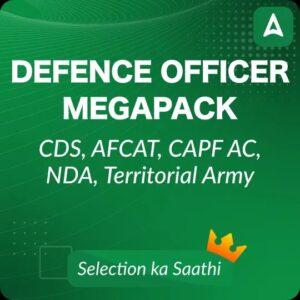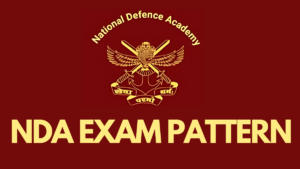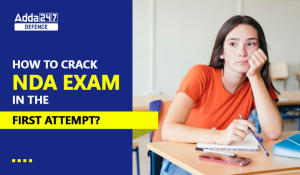The Indian Navy has announced recruitment for 254 SSC Officer vacancies. For candidates aspiring to start their careers as SSC Officers in the Indian Navy, understanding the Indian Navy SSC Officer Syllabus is crucial. A thorough understanding of the syllabus aids in effective exam preparation, helping candidates perform well in the written examination for roles in the Defence sector.
Indian Navy SSC Officer Syllabus 2024
The candidates who are eligible and will be preparing for the Indian Navy SSC Officer recruitment must be aware of the Indian Navy SSC Officer syllabus and exam pattern. The Indian Navy SSC Officer written examination consists of various subjects, namely English, General Science, Mathematical Aptitude, Reasoning and Numerical Ability, and General Knowledge. In this article we have discussed the Indian Navy SSC Officer syllabus in detail.
Indian Navy SSC Officer Syllabus: Overview
| Indian Navy SSC Officer 2024 Syllabus | |
| Conducting Organization | Indian Navy |
| Post Name | SSC Officer |
| Vacancies | 254 |
| Exam level | National |
| Mode of exam | Offline |
| Number of stages | Three |
| Marking scheme | +1 mark for correct answer, – 0.25 mark for incorrect answer |
| Duration | 60 minutes |
| Type of questions | Multiple choice questions |
| Official website | joinindiannavy.gov.in |
Indian Navy SSC Officer Subject Wise Syllabus 2024
The Indian Navy SSC exam is an offline qualification assessment. It consists of objective-type questions covering English, General Science, Mathematical Aptitude, Reasoning and Numerical Ability, and General Knowledge.
| Subject | Syllabus |
| English | Idioms and Phrases Sentence Arrangement Passage Completion Spotting Errors Fill in the blanks Substitution Sentence (repeated) Active and Passive Voice Substitution (repeated) Synonyms Antonyms Prepositions Spelling Test Error Correction (Underlined Part) Error Correction Transformation Joining Sentences Para Completion Sentence Improvement |
| Reasoning | Analytical Reasoning Visual Memory Discrimination Number Series Space Visualization Coding-Decoding Arithmetical Reasoning Arithmetical Number Series Venn Diagrams Semantic Analogy Non-Verbal Test Shapes and Mirror Symbolic/Number Classification Odd Man Out Letter Series Figural Classification Relationship Concepts Similarities Problem Solving Clocks |
| Numerical Ability | Average Time and Distance Percentages Number System Pipes and Cisterns Problems on Ages Problems on Trains Clocks and Calendars Ratios and Proportion Mixture and Alligation Data Interpretation Time and Work Simple & Compound Interest Profit and Loss H.C.F. and L.C.M. Boats and Streams |
| General Science | Units and Measurements Laws of Motion Kinetic Theory Gravitation Work, Energy, and Power Wave Optics Physical World Thermal Properties of Matter Ray Optics and Optical Instruments Thermodynamics Mechanical Properties of Solids Semiconductor Electronics Motion in a Straight Line Nuclei Systems of Particles and Rotational Motion Electrostatic Potential and Capacitance Mechanical Properties of Fluids Moving Charges and Magnetism Electric Charges and Fields P-Block Elements Group 13 (Boron Family) General Principles of Metallurgy Surface Chemistry Organic Compounds Containing C, H, and O Stoichiometry D and F Block Elements & Coordination Compounds Solutions Chemical Equilibrium and Acids-Bases Biomolecules Hydrogen and its Compounds Electrochemistry and Chemical Kinetics Polymers Haloalkanes and Haloarenes Current Electricity Dual Nature of Radiation and Matter Atoms Magnetism and Matter Electromagnetic Induction Electromagnetic Waves Motion in a Plane Alternating Current P-Block Elements – Group 14 (Carbon Family) Classification of Elements and Periodicity in Properties States of Matter: Gases and Liquids Thermodynamics Environmental Chemistry Chemistry in Everyday Life Chemical Bonding and Molecular Structure Communication Systems P-Block Elements |
| Mathematics | C.F. (Common Factor) Simplification Average Ratio & Proportion Discount Simple & Compound Interest Mensuration Percentage Arithmetical and Numerical Abilities Profit & Loss C.M. (Common Multiple) Time & Work Decimals Number Systems Tables & Graphs, etc. Time & Distance |
| General Knowledge | India and Its Neighboring Countries Scientific Observations World Organizations Sculptures Famous Places in India Artists Indian Culture International Issues Geography of India Handicrafts Political Science Countries and Capitals Important Dates Science and Innovations Economic Issues in India Books and Authors Music & Literature National News (Current) National Dance New Inventions Tourism Spots of Historical Importance Famous Places Musical Instruments Tribes |
Indian Navy SSC Officer Syllabus 2024 Preparation Tips
Cracking the Indian Navy SSC Officer exam requires mental agility and physical fitness. To succeed, candidates should follow these preparation tips:
- Create a daily schedule allocating time for learning and practice.
- Stay alert and attentive during the multiple rounds of the SSB Interview, which assess mental acuity.
- Solve mental puzzles to enhance overall attentiveness.
- Prepare for the interview round by engaging in activities that boost self-confidence.



 Important Topics to Score 300+ in NDA GA...
Important Topics to Score 300+ in NDA GA...
 NDA Exam Pattern 2025 for GAT and Maths
NDA Exam Pattern 2025 for GAT and Maths
 How to Crack NDA Exam in the First Attem...
How to Crack NDA Exam in the First Attem...
